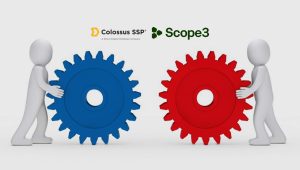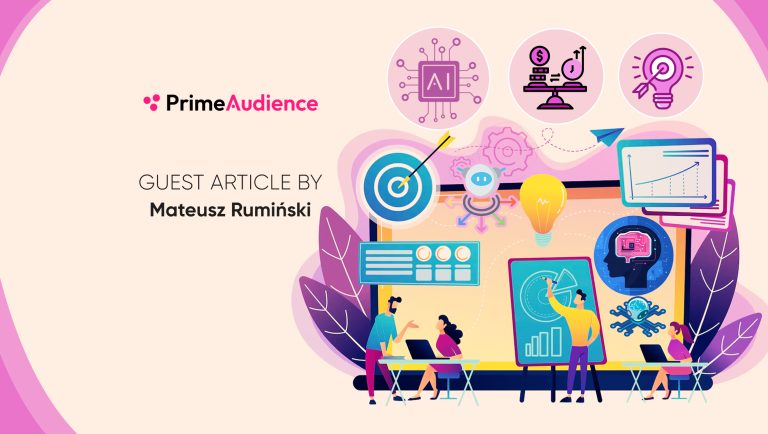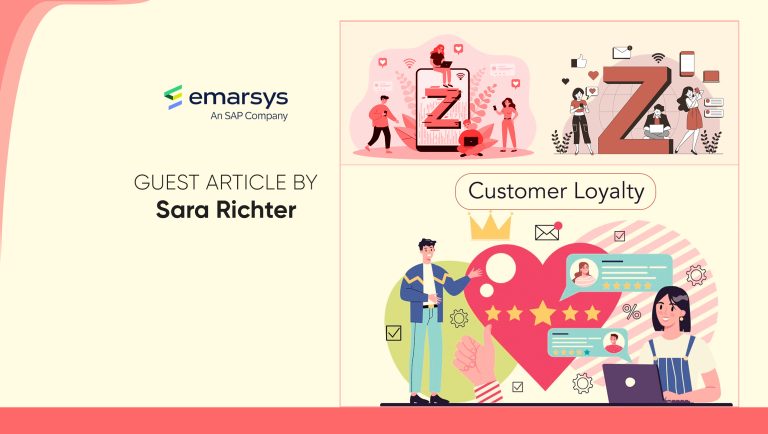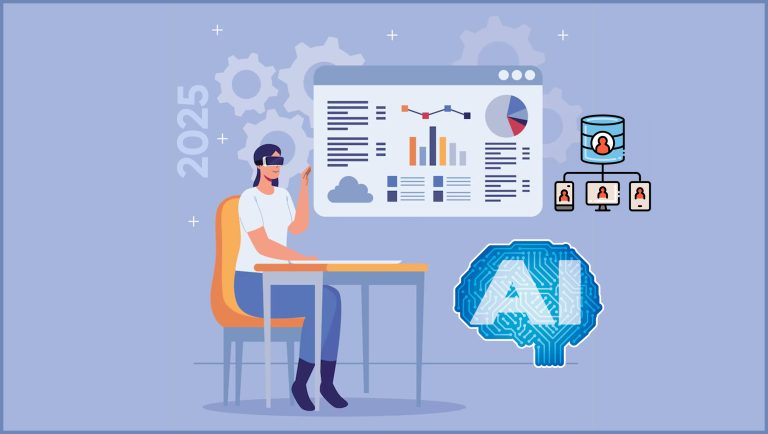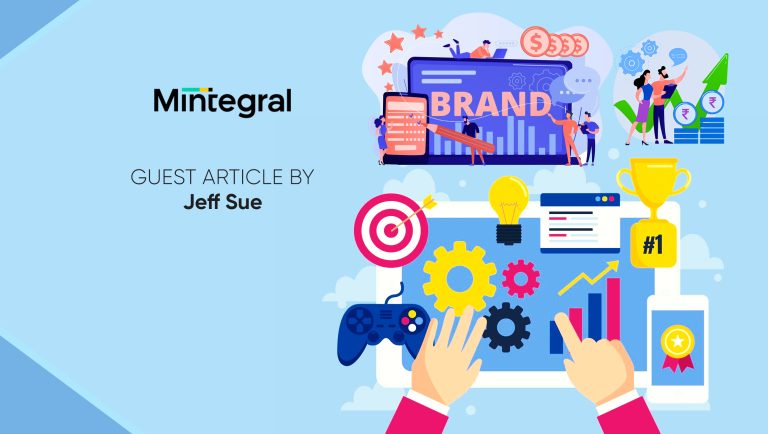Unveiled at CES 2024, the hyper-realistic avatar preserves the voice and personality of a 24-year-old woman with ALS to enable unprecedented communication and connection, complemented by a personal, on-device AI from Lenovo to optimize text prediction and output
At CES 2024, global technology leader Lenovo, assistive technology non-profit the Scott-Morgan Foundation, and AI-generated video innovator DeepBrain AI revealed a hyper-realistic AI avatar dedicated to preserving the voice, personality, and physical mannerisms of someone with a degenerative disease. The groundbreaking avatar, created with DeepBrain AI technology and spearheaded by Lenovo, opens new pathways for applying generative AI to accessibility challenges and helps advance Lenovo’s vision of AI for all.
“Feeling so devastated and lost, we were grateful to the Scott-Morgan Foundation for inviting us to help build something new and shape the future”
As part of an ongoing collaboration with the Scott-Morgan Foundation, Lenovo proposed developing an AI-powered avatar to leap past traditional voice synthesis and transform communication and connection for people with severe disabilities. The Foundation invited Erin Taylor, a 24-year-old woman recently diagnosed with amyotrophic lateral sclerosis (ALS), a neurodegenerative disorder that typically leads to full-body paralysis, to participate and help pilot a proof of concept for assistive communication.
Lenovo then approached DeepBrain AI, a leader in next-gen avatars and a Lenovo AI Innovator partner, to use its generative AI technology. Sponsored by Lenovo, the DeepBrain AI team captured a detailed full-body video of Taylor in its California studio. The video became the foundational data for her new AI avatar, debuted at CES 2024, and offering 96 percent true-to-life accuracy. Preview the avatar on YouTube.
“This is a fantastic example of the untapped potential of generative AI to empower individuals and build a more inclusive future, especially with such visionary collaborators,” said Scott Tease, vice president and general manager of High-Performance Computing and AI at Lenovo. “Leveraging our expansive solutions portfolio and in-house expertise, we love finding these opportunities to reimagine what’s possible and help solve humanity’s greatest challenges.”
Lenovo’s AI data scientists also developed a prototype for a new predictive AI tool to accelerate text input when a traditional keyboard or voice-to-speech technology is not an option—as with advanced ALS. The personal, on-device AI operates entirely offline, leveraging a compressed large language model (LLM) to offer the speed, reliability, and accuracy essential when communicating health information or other urgent needs. This follows Lenovo’s approach to Hybrid AI, operating across public, private, and personal foundation models that the company unveiled at its annual Tech World event in October 2023.
Unlike common predictive text engines that provide a single suggestion, this novel AI solution provides multiple options after each character input to better assist users.
The Scott-Morgan Foundation and Lenovo AI experts are working to integrate the predictive AI into the backend of their integrated communication platform showcased at CES. The platform combines the avatar, an original circular keyboard optimized for eye-gaze tracking, and multimodal inputs to support a wide range of physical capabilities.
Marketing Technology News: Meltwater Achieves ISO 27001 Certification, Elevating Data Security for the Company’s 27,000 Customers Globally
“Our vision is built on a commitment to ensuring a universal right to thrive through technology,” said Andrew Morgan, chief executive officer of the Scott-Morgan Foundation. “AI is accelerating work we began years ago, and our brilliant collaborators are helping us completely change the accessibility landscape. Collectively, we are lighting a beacon for what’s possible—not just for people with ALS, but for everyone.”
At CES, the avatar and related solutions were shown using several Lenovo devices optimized for their flexibility and unique strengths in harnessing the power of AI. This included a Lenovo Yoga AIO 9i premium consumer desktop PC running the AI avatar and a high-performance Lenovo ThinkPad P1 mobile workstation running the predictive text AI prototype. The Scott-Morgan Foundation’s circular keyboard and Irisbond’s eye-gaze tracking technology were also tested directly by Taylor in her home using a donated Lenovo Yoga 7i laptop that’s powerful and portable. Lenovo also debuted a full suite of consumer and enterprise technology at CES dedicated to unleashing the potential of AI for productivity and play.
The DeepBrain AI avatar technology was originally developed to power generative AI humans or assistants—such as the one showcased at a recent Lenovo Formula 1 event—or to create versatile “twins” of celebrities, sports figures, or other influencers. Here, DeepBrain recognized a chance to deploy its proprietary technology as assistive tech.
DeepBrain AI gave Taylor complementary access to its AI Studios, empowering her to create a nearly unlimited stream of digital content.
“We are constantly amazed at how our partners and clients think of new ways to use AI-generated video. Lenovo had the foresight to share their vision on how this technology could be implemented as a component of an assistive technology platform,” said Eric Jang, CEO of DeepBrain AI. “Future developments at DeepBrain will enable hyper-realistic avatars for everyone.”
After a brief series of escalating symptoms, Taylor was diagnosed with ALS in the summer of 2023. Her career in botany, forestry, and related work in the wild was abruptly paused as she and her mother faced countless questions about the progression of the disease. The shock was especially potent given the disease primarily affects people over the age of 40.
“Feeling so devastated and lost, we were grateful to the Scott-Morgan Foundation for inviting us to help build something new and shape the future,” said Taylor, who lives outside Los Angeles with her mother, Lily. “The avatar is incredible, but what matters most to me is that this technology could help change the lives of many more people facing ALS or other diseases—a way of showing how bright the future can still be.”
“I have no doubt this pioneering proof of concept will one day help shape even more staggering innovations,” Morgan said. “Our foundation was built on the dream that technology, and AI especially, can break through severe disabilities and ensure a right to create, connect, and live life joyfully. We’re making that happen.”
Marketing Technology News: MarTech Interview with Daniel Head, CEO at Phrasee









